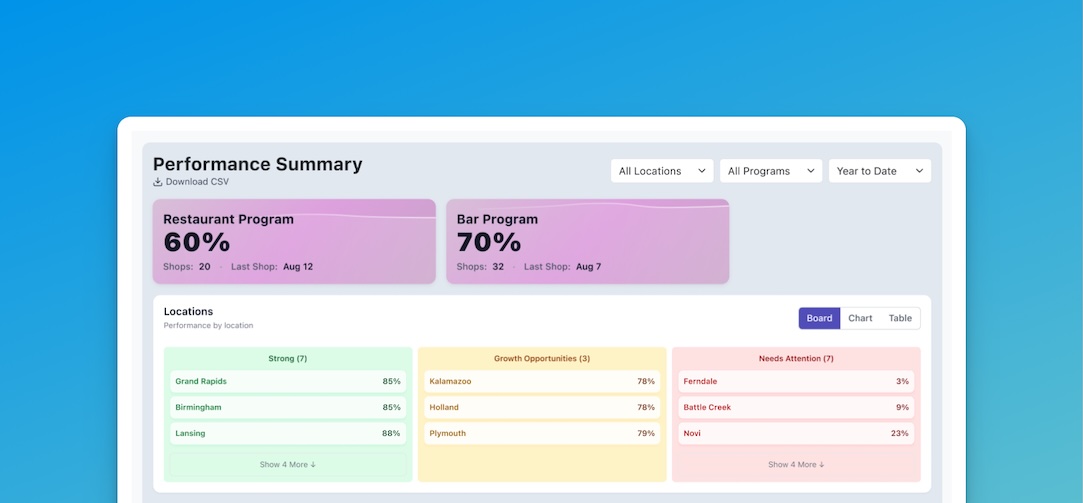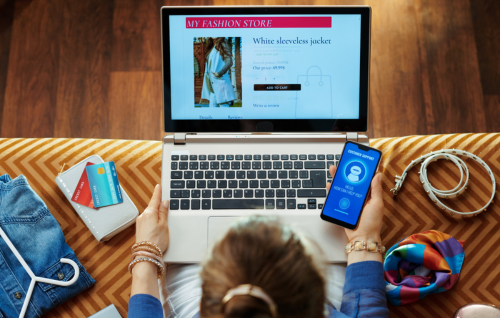
In your search to create a better customer experience for your brand humor might not be in your sights. But following the global pandemic the need for human connection and happiness has increased. Of the top 25 countries in the world the US ranks at number 23. A 2022 report states that a whopping 91% of people globally prefer brands to be funny in their business strategy. In fact since 2004 search engine terms for “embracing happiness” or “finding joy” have increased dramatically.
Humor can play a significant role in your business specifically in improving customer experience. From memorable connections to higher morale a better customer experience is only a quip away.
Strong Business Relationships Build a Better Customer Experience
How does humor help? In a time filled with constant stressors a little comic relief can go a long way in easing concerns building bonds and ultimately aiding in customer retention.
Create a Bond with Memorable Experiences
Sharing humor can create a better customer experience with a bond that only human interaction can facilitate. Whether online or in person a conversation can feel more friendly and personal with a laugh.
Additionally humor in your marketing and signage can help create a memorable identity with your customers. These small additions to your business are highly shareable and can ultimately encourage visibility to new customers. In sum humor helps your business appear friendly personal and relatable to current and potential patrons.
Generate Competitive Differentiation for a Better Customer Experience
In addition to memorable experiences humor can help you stand out and distinguish your business from competitors. Note that it’s important to know your audience so you can use the type of humor that will be well-received—and even go viral—rather than fall flat. An effective use of humor throughout your branding and marketing can make interactions on all channels more engaging.
Marketing your business with a distinct personality will help you stand out in your industry which in turn helps you stay top of mind for your customers. In short conducting market research and implementing humor can give your business a distinctive edge.
Bonus Tip: Authenticity is extremely important for building relationships and loyalty. This connection resonates with people on a deeper level. Utilizing humor with a genuine approach (instead of dated or shallow jokes) that plays on your brand is effective in gaining trust with customers.
Happy Customers are Returning Customers
In a time when people are actively searching for joy and happiness differentiation is critical to a better customer experience. Good humor evokes positive emotions and creates a sense of community further encouraging repeat business. When customers look forward to your fun content engagement with your brand is likely to increase.
With strategic marketing your identity will be reinforced in your customers' minds each time they visit your location or see your brand in daily life—and become unforgettable. To sum it up creating a better customer experience with humor fosters a deeper lasting connection with your customers.
Employee Morale & Happiness in Company Culture
Levity doesn’t have to stop at the storefront. Here’s how humor can influence your brand in a positive way from the inside out.
Infuse Brand Humor
Your staff members are integral parts of your business and a happy team is more effective. From workplace cultural fit to employee training it’s possible to integrate humor into your brand in a way that feels intentional and authentic. (More on this later.) Brand humor can influence staff members to be more comfortable in their working environment. Comfortable team members are more likely to enjoy their jobs find value in their work and be more productive.
Humor and emotion play an important role in creating happy staff as well as bonds with your customers. In fact a study conducted by Google and Motista noted that more than 50% of B2B (business-to-business) purchasers are more likely to buy a product if they are emotionally connected to their vendors. Implementing a company culture with good humor can influence the workplace enhancing productivity boosting morale and ultimately creating a positive work environment.
Symbolize a Positive Work Environment
As brand humor finds its way into the workplace from the top down you might begin to see changes in the operational atmosphere as well. This can facilitate conversation and encourage an enjoyable work environment among employees and customers. When team members share humor to build bonds it fosters better communication and collaboration. Customers will observe the positive work environment and feel comfortable and at ease when using your services.
Using humor creates a better customer experience for patrons by building strong relationships with your staff. That is to say a happy and positive work environment is healthier for your business’s entire ecosystem—and you!
Defuse Stressful Situations for a Better Customer Experience
To take this a step further you can use humor thoughtfully to help manage conflict. When your employees encounter a customer with a problem it can cause them to raise their guard. A staff member who is able to utilize shared humor can defuse challenging situations while also boosting morale. By reframing the problem and breaking the ice with a touch of humor you can make the customer more comfortable and more relaxed—which will make solving the issue easier. Plus humor can even spark creativity in resolving the situation.
Easing frustrations can break through barriers that would otherwise cause people to avoid authentic communication. With a shift in perspective the problems can seem less disheartening. Specifically humor can be used to acknowledge the other party's concerns while showing empathy and modeling positive behavior.
How to Utilize Humor for a Better Customer Experience
Now that we understand how vital humor is for creating bonds and enhancing relationships let's discover ways that humor can enhance your branding itself.
Creative Comedy
You can add gentle humor in the form of small jokes creative puns memes and playful ads to a number of your business activities:
- Marketing campaigns
- Signage and billboards
- Websites AI chatbots and social media
- Stickers packaging and notes
- Internal communications
For example brands like Progressive Old Spice and Charmin have hit the mark with their branding. By tuning into their audience and making light of “boring” subject matter they’ve created memorable branding that keeps them top of mind.
Employee-Led Humor
When your employees are comfortable with your brand voice and culture it quickly becomes easy for them to display that in conversation. If humor is part of your brand it allows your team members to easily share lighthearted humorous conversations. For example many Dutch Bros Coffee employees are encouraged to engage customers in cheerful small talk. Zappos is another brand that encourages living in a culture of happiness whether they’re on the clock or not. That is to say encourage and train your customer service team to utilize humor appropriately in interactions.
Bonus Tip: As well as internal communications consider implementing awards and team-building activities that incorporate humor. Remember creating memorable experiences isn’t just for your customers; it’s vital for your team members too.
Make Sure Your Humor Lands
While humor can bring joy and encourage bond-building it’s extremely important to take a mindful approach when incorporating it into your brand. Being strategic can help you minimize the risks and repercussions of poor or offensive humor:
- Keep it tactful for certain brands and industries when considering humor.
- Read the room. Not all situations should be responded to with humor or jokes.
- Do your research on slang or other cultures. Brand humor should be used respectfully and with inclusivity in mind.
- Take a balanced approach to maintain professionalism.
- Be authentic. Utilize humor that fits your brand and culture. Forced jokes can fall flat because they’re not always effective and can hinder trust in your brand.
Gauging Effectiveness for a Better Customer Experience
Whether you’ve slowly incorporated humor or have created a plan for future integration you might be wondering how to gauge your effectiveness: is your humor working?
Thankfully there are a few tools you can use to get actionable data.
- Website and social media metrics: Dig into your analytics and see how humor affected consumer engagement with a Net Promoter Score (NPS) customer satisfaction scores and sales/conversion rates.
- Customer survey: Put together a survey to ask customers what they think of your humor and your brand. Structure your questions carefully so you get the answers you’re interested in.
- A/B testing: Utilize split testing in marketing email social media web pages and more and review the results. This can help you discover what resonates with your audience best when creating a better customer experience.
- Mystery shop: Hire a customer experience (CX) evaluation company or set up a custom mystery shop with an emphasis on branding effectiveness.
- Observation and direct feedback: Pay attention and listen to customers and staff to see what their feedback is on your changes.
Create a Better Customer Experience by Incorporating Humor
By adding a bit of levity to your branding you can significantly enhance your business strategy and create a better customer experience. When used appropriately humor can humanize your brand and make it relatable fostering a sense of community and ultimately brand loyalty. However the key is knowing how to balance professionalism with gentle respectful inclusive humor.
As you integrate humor to create a better customer experience you’ll find that it’s a powerful tool for building strong relationships and driving business success. Be the leader of humor in your industry and pave the way with laughter and good fun.
Subscribe to the Buzz
Receive exclusive insights, tips, and customer experience strategies straight to your inbox.







